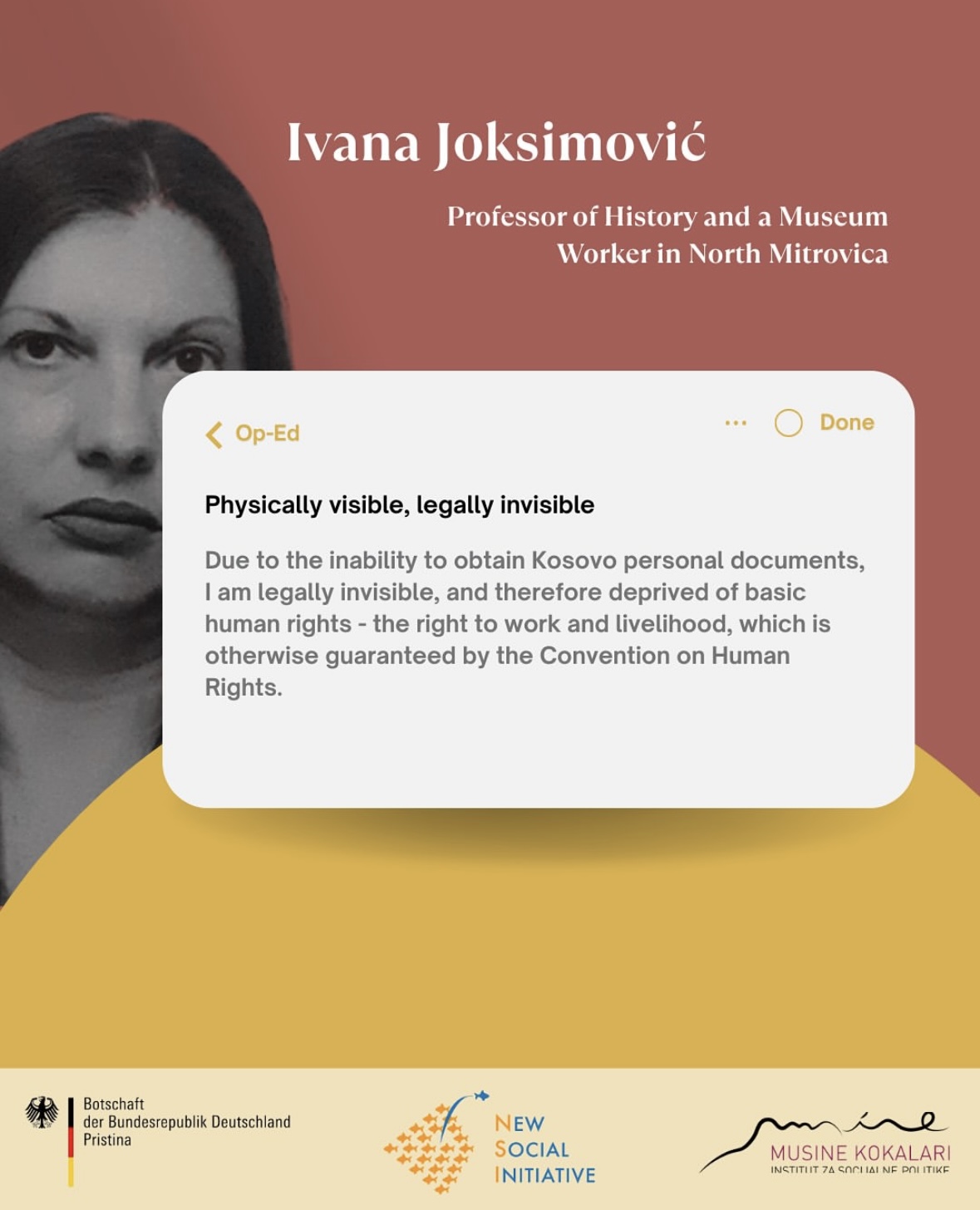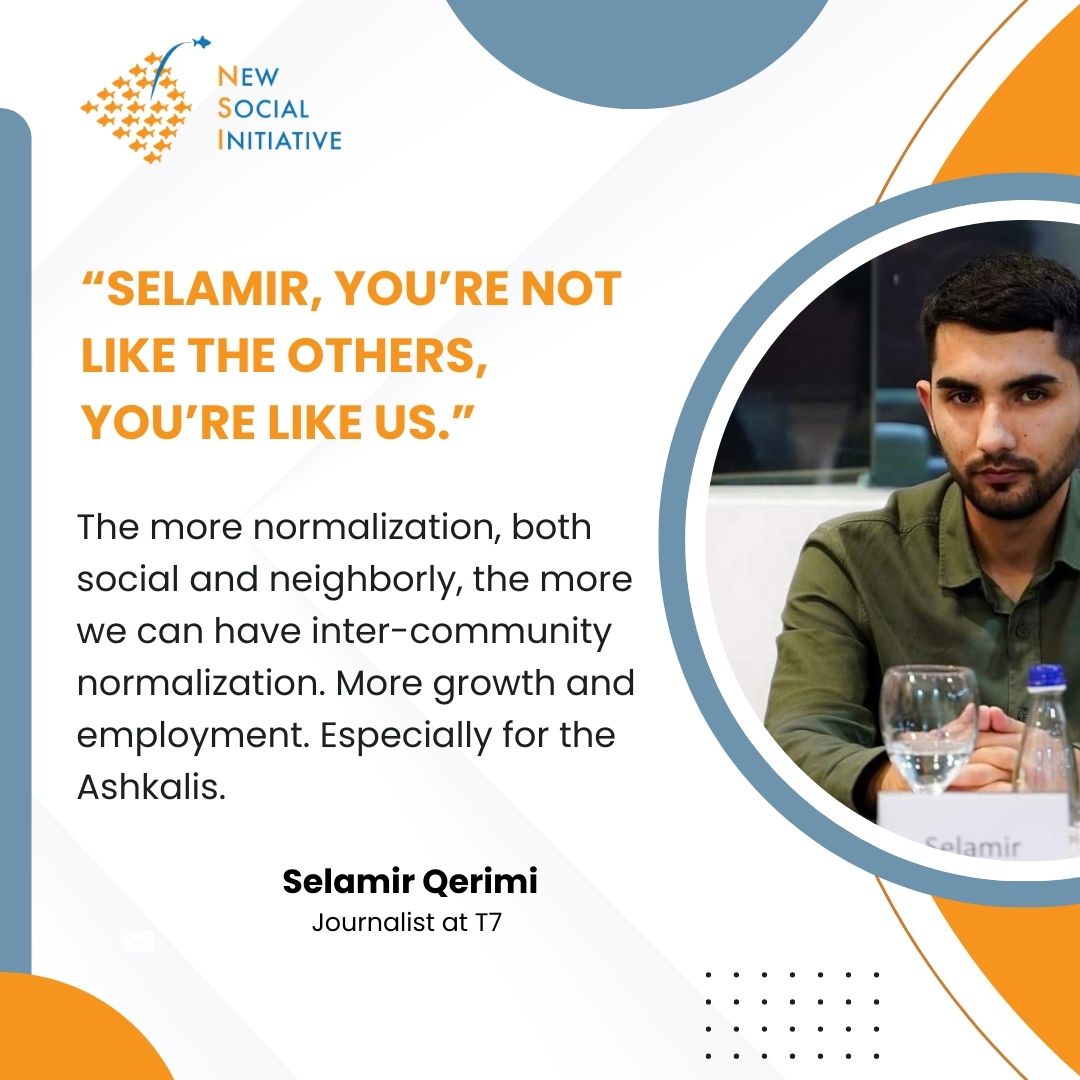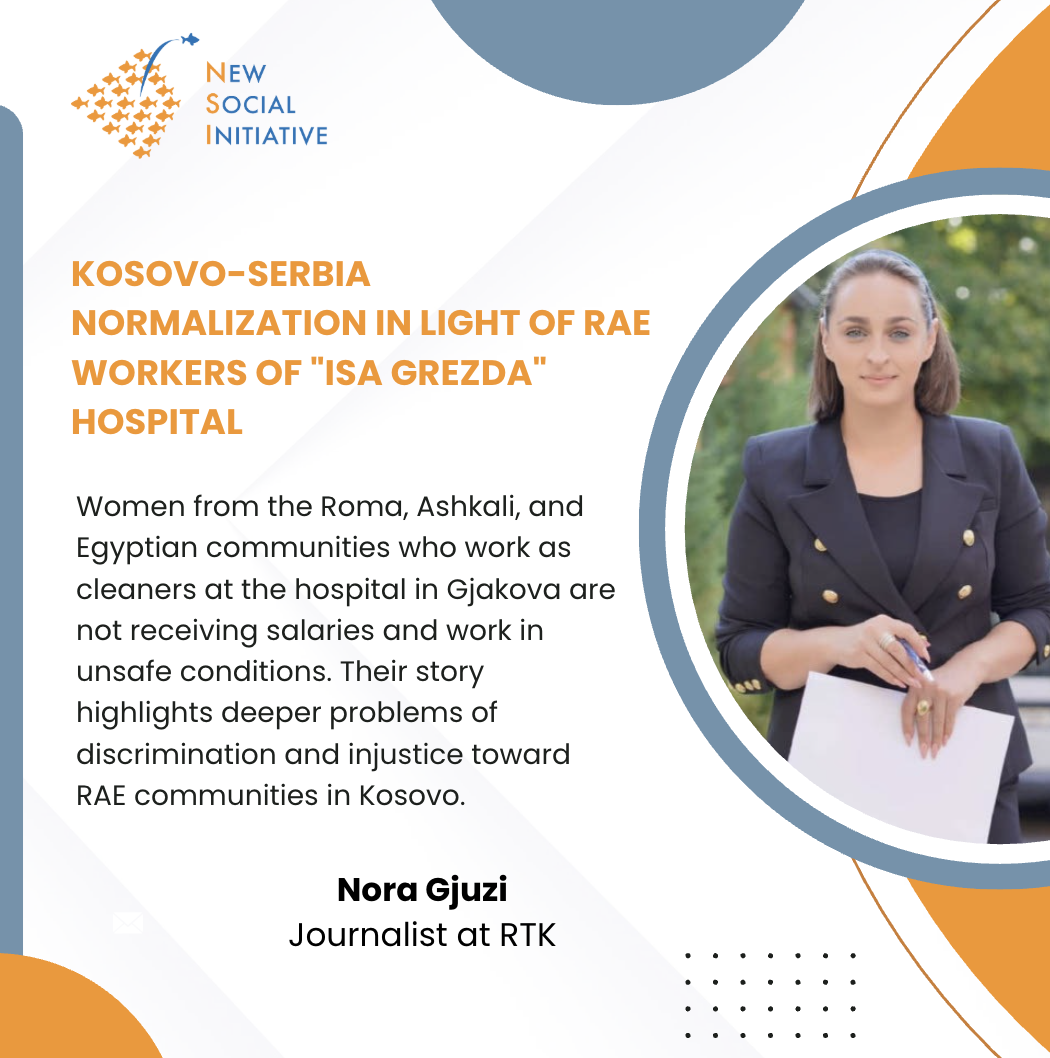Are we equal, and why are we not? – the fate of the Serbs south of the Ibar
I remember April 19, 2013, well. We were traveling to Ohrid, to one of the seminars on monitoring the work of local self-government, and by the time we got there, we were greeted by this important news – the Brussels Agreement was signed.
Honestly, we didn’t know what it meant precisely and what effects it would have on our lives. In fact, to this day, we Serbs, south of the Ibar, are yet to find this out. The Association of Serbian Municipalities was first mentioned back then, and it continues to be mentioned to this day. We did not know anything about it back then, and we are clueless about it still – what it is and what competencies it will have? The integration of the North was mentioned too. That one, we knew right away, would be a pain. And we guessed it well.
When the Brussels Agreement is talked about in public, everything is directed to the North. That is how it has been since April 19, 2013. Elections, election processes, the issue of energy, the issue of registration plates, the issue of return, the rights, the issue of the judiciary, all kinds of problems, and no one gives a dime about us – Serbs south of the Ibar. We disappeared from the radar as if we lived in the Bermuda Triangle and not in Kosovo (and in Metohija). They mention us from time to time, just for the sake of doing it, to let it be known that they know we are here, but no one is fighting over us – not Belgrade, not Pristina, not even the international community who bow down their head, look at the floor and stay silent. We are quiet, too; we don’t know what to say or whom to say it to.
The Brussels agreement did not bring us anything, but it did take everything from us – primarily, our freedom. We are the ones who live from yesterday to tomorrow, and today is especially frightening for us because we do not know what today brings; we only know it will take more from us. And that’s how it goes!
Occasionally though, when we cry out loudly, some hear that we are deprived of everything – justice, dignity, a good night’s sleep, future, perspective.
They can hear someone is beating our children, like when three adult Albanians beat up little Luka in the middle of Gračanica/Graçanicë. The Police ruled it out as a “verbal misunderstanding,” and instead of prosecuting the attackers, it punished the father of the beaten boy because he dared to protest. Punished were also those who supported his protest and who demanded law and justice be respected because there apparently is no law nor justice for us. Now take a walk with your girlfriend if you dare.
They can hear that we are being put on trial with a particular Serbian translation of the law. According to that law, there is no possibility of a fine for certain offenses (an option kept in the Albanian language version of the same law). So, you go to court if you dare; the prison sentence is guaranteed.
They can hear that Serbs older than 65 are “pension tourists” whose right to social benefits of 90 euros per month is discontinued because they do not have a house in their name. In the majority’s opinion, they are a burden; they “misuse” the Kosovo budget. At the same time, they disregard the fact that Serbs south of the Ibar are mostly “internally-internally” displaced persons who fled the pogrom of 2004 and lost their houses and all their belongings. No home – no “old-age pension,” you can live off air.
They can hear that our right to vote is being revoked because someone does not like how we voted. They know that it is not of our free will. They know! Well, you go to the polling stations again if you dare.
They can hear that for 17,000 of our students, there are no textbooks from Serbia, even though the Law on Education in Kosovo clearly provides for the exclusive competencies of the Ministry of Education of Serbia for education in the Serbian language, especially in terms of curriculum and textbook distribution. But who cares about the laws in Kosovo? The import of books is not allowed, but not by the decision of the Government of Kosovo but based on an email the Minister of Education of Kosovo sent to the director of customs, at the request of an Albanian, a citizen of Serbia, the late Jonuz Musliu. Now send your child to school if you dare; they will learn from YouTube, nothing wrong with that.
They can hear threats that there will be no Serbs in Kosovo because Interpol arrested a Kosovo politician. Still, they won’t hear about apologies for those threats directed to the citizens of Kosovo, Serbs, who are allegedly equal according to the Constitution. So have a good night’s sleep if you can.
They can hear that the church property is confiscated, that Orthodox monasteries are declared ancient-catholic, that Albanians, not Nemanjići built the Visoki Dečani Monastery because that is what an association of historians from Deçan/Dečani says because they know! The 8-century-long history and all valid historical records should be rejected, and along with it, the decision of the Constitutional Court confirming ownership of that same monastery over its property. They can also hear that the Church of Christ the Savior in Pristina symbolizes evil, that the Serbian Orthodox Church is a provocateur for serving a liturgy in the church on Ascension Day. Imagine the audacity! Now be fooled and believe in religious freedoms, you God’s servant.
They can hear that the Serbian and Albanian languages and their alphabets are equal in Kosovo. Still, you will only hear Serbian if you dare to complain about the violation of the right to use the language to the Office of the Language Commissioner. And only because the head of this office is a Serb who fights against windmills to preserve the status of the Serbian language in Kosovo’s institutions. The Cyrillic alphabet you will only see in your villages, the so-called Serbian municipalities because we are only allowed to be Serbs there. Try looking for Serbian and Cyrillic in Gjakova/Đakovica if you dare.
Speaking of Gjakova/Đakovica, one can hear of Dragica, who can’t buy bread or medicine because she did not apologize for something she did not do. She also has no right to be there and will have to leave, if not nicely – then by force, because that is what 11 non-governmental organizations from Gjakova/Đakovica say. So, return to live in Kosovo if you will, but no bread for you. Looting and broken windows, on the other hand, you can count on.
They can also hear that young people leave every day – sometimes because of education, sometimes because of politics, sometimes out of spite, but primarily because of misery and poverty. Regardless, they leave and never come back. “We are so few left that none would remain after us,” a young poet from Gračanica/Graçanicë wrote.
Much more could be heard about the south – thefts, stonings, beatings, misdeeds, political destruction, and self-destruction. There are too few words to describe what life can bring us in just a day. But we raise our voice on a rare occasion because we have learned that we must fight alone through this life. For every injustice that befalls us, for every “case” we fight alone, with the memorized laws of Kosovo, explaining to Kosovo “patriots” and “fathers of the nation” that we are equal citizens according to the Constitution and the laws of Kosovo. But they don’t see us as such because we are Serbs, because we are a threat, because we “owe” them because we have to do everything that others do not have to, because we pay the bill for everything. After all, we are easy targets because we are here and because they can. And with each new Kosovo government, things get worse. For them, we are cannonballs that need to be fired to fly as far as possible and to make as much noise as possible. The worse they are towards us, the bigger the patriots they are in the public’s eyes—shameful and unworthy behavior of alleged representatives of all citizens of Kosovo.
However, our problems sound no civil defense sirens, no helicopters take off, no combat readiness gets adjusted. We are not even the subject of negotiations, and barely anyone represents us in institutions; we are a voice everyone has put on MUTE. Sometimes though, they read from our lips – that is our reality and our torment. The Brussels agreement was not intended for us. We are content when they list all our villages accurately – Plemetina/Plemetin, Gračanica/Graçanicë, Novo Brdo/ Novobërdë, Kamenica/ Kamenicë, Ranilug/Ranillug, Parteš/Partesh, Klokot/Kllokot, Vitina/Viti, Štrpce/ Shtërpca. They know it, that means it’s good, it means we’re here. For a while longer, at least.
Only the hearth will remain behind its centuries-old guardians. Not the ancient one, but the “Hearth” in Gračanica/Graçanicë, where we sometimes gather to remind ourselves why we are still here, to find justification for ourselves, and why we keep our children as prisoners in a ghetto, without a chance of a carefree childhood. What are we doing? Why are we doing it? The worst part is that we are aware that we are suffering from Stockholm Syndrome; we are aware that we are hostages – of Pristina, Belgrade, ourselves, and our desires and hopes. And we only hope that one of these days, it all ends; it becomes a yesterday, an ugly dream. That a day comes when we will no longer be plebeians in Kosovo, but citizens, dignified and equal, but not wondering – why we are not?
Within Kosovo Collective Op-Ed series
Opinions expressed in this oped series do not necessarily represent those of the Balkan Trust for Democracy, the German Marshall Fund of the U.S. (BTD), U.S. Agency for International Development (USAID), or the U.S. Government.
The project is supported by the Balkan Trust for Democracy of the German Marshall Fund of the U.S. and USAID










